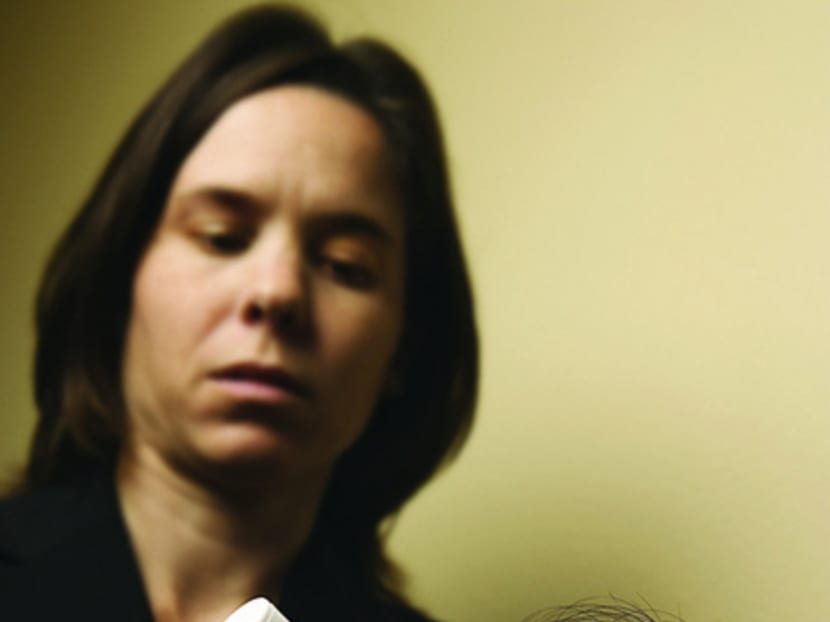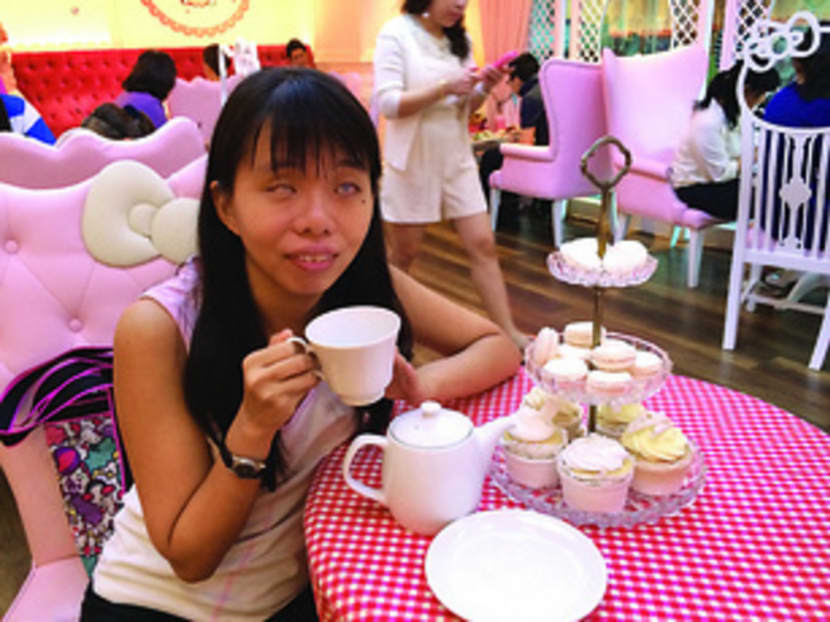Glaucoma affects younger adults too
SINGAPORE — Permanent vision loss is not something most 26-year-old adults think about. For Ms Patricia Poo, however, it is a worry that has plagued her since she was diagnosed with glaucoma.


SINGAPORE — Permanent vision loss is not something most 26-year-old adults think about. For Ms Patricia Poo, however, it is a worry that has plagued her since she was diagnosed with glaucoma.
The leading cause of permanent blindness in Singapore, glaucoma occurs when an excessive build-up of pressure in the eye — caused by an imbalance between its fluid production and drainage out of the eye — damages the optic nerve. The nerve damage is progressive and irreversible.
Ms Poo was born with sclerocornea, a genetic eye disorder that leads to clouding in the cornea. She later developed glaucoma during her teenage years.
“Over the years, my eyesight gradually deteriorated. I can no longer see things as clearly as before, especially smaller objects and words. Now, I’m trying to prolong my sight with medication,” said Ms Poo, a receptionist.
Glaucoma usually affects adults above the age of 50. Although uncommon, younger people can get it too.
It is estimated that about one in 10 local patients are under the age of 45, according to Dr Chua Wei Han, senior consultant ophthalmologist and medical director of Parkway Eye Centre at Mount Elizabeth Hospital.
Singapore National Eye Centre (SNEC) sees approximately 30,000 glaucoma patient visits annually. Less than 10 per cent are under 50 years old, said Dr David Goh, consultant at SNEC’s Glaucoma Department and deputy clinical director at SNEC Primary Eyecare Clinic.
For younger people, glaucoma risk can increase if there is a family history of the eye disorder. This is one of the most important risk factors, and having an immediate family member, such as a parent or sibling, with the eye disorder increases a person’s risk by two to three times, said Dr Goh.
The experts said the use of certain medications such as steroids and a previous eye trauma, such as an eye injury or surgery, can also increase a younger person’s risk of glaucoma. As can having high myopia of over 800 degrees, said Dr Goh.
AT-RISK GROUPS
For adults aged 40 to 50, Dr Chua recommended going for eye checks once every three years. Adults aged 50 to 60 and those above 60 are advised to go for screening once every two years and once a year, respectively.
However, adults in their 20s and 30s may consider going for early screening if they have a strong family history of glaucoma, or other risk factors listed above, said Dr Chua. Consult a doctor for advice.
This is because most cases of early glaucoma have virtually no symptoms. Said Dr Chua: “Vision loss begins with peripheral or side vision, and is usually not noticeable. Vision loss from glaucoma cannot be reversed. Early detection and prompt treatment is the first step towards preserving good vision.”
While the condition is irreversible, treatments in the form of eye drops to reduce eye pressure, laser treatment or surgery are now available to halt or delay its progression.
“The treatments are generally the same for both old and young patients. I would strongly advise younger patients to use their prescribed eye drops, and be diligent with their regular eye reviews. This is because we do not want their vision to deteriorate any further when they are still highly productive,” said Dr Chua.
To preserve her existing sight for as long as possible, Ms Poo uses three different types of eye drops. She applies them every day at various timings, and sees her doctor for follow-ups every two to three months.
“One of the eye drops needs to be refrigerated and that is very inconvenient for me when I travel. But that is a small price to pay for keeping my condition under control,” she said.
Dr Goh, who is Ms Poo’s eye doctor, said he cannot predict when her vision will deteriorate further. When conservative treatment no longer works, surgery may be one of the options but that poses risks such as infection, bleeding and vision loss.
At the moment, Ms Poo is grateful she is able to maintain her sight. “I might eventually lose all my vision but I’ll just take one day at a time now,” she said.





